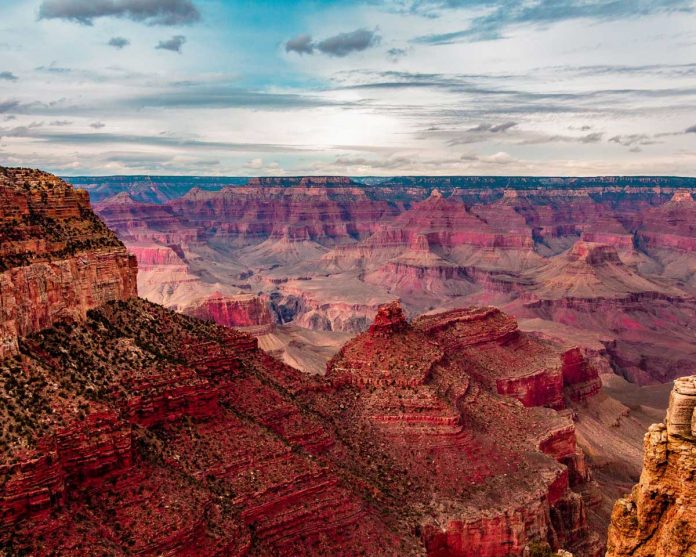Geologists have made a 11-day raft trip through the Grand Canyon and collected some evidences in hope that it will help them to peer billions of years into the past. They think by these evidences, they will be able to know the age of a mysterious section of the Grand Canyon.
Olivia Thurston, a post-doctoral researcher at Indiana University, have tried to find out what happened during the period of The Great Unconformity in the Grand Canyon.
The findings of this research have been published in the journal Geology. In this paper scientists explained how the eastern Grand Canyon were created.
A professor at The University of New Mexico named Karlstrom has led the team of scientists through the Grand Canyon as he is an expert figure of research about the Grand Canyon.
Olivia Thurston was one member of this team who has reached there with zircon-helium thermochronology to test its reach. This thermochronology measures a cooled down mineral as erosion brings its closer to the surface. This new technology measures the ratio of helium to uranium inside the mineral zircon to define when the mineral has been cooled down.
Zircon is a commonly found mineral in microscopic form in the Canyon.
But this entire process was not simple. Uranium made it complicated. Zircon has resistance in physical and chemical weathering but uranium radiation has damaged its crystalline structure.
When zircon entered farther below the earth’s surface, helium is released. When exhumation starts, the mineral is lifted to the surface and helium got trapped. By measuring how much helium is there within the zircon’s crystalline structure, scientists have predicted when the cooling process began.
According to this research, the exhumation took place around 1.25–1.35 billion years ago.

